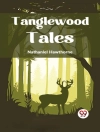Edith Wharton’s ‘The Age of Innocence’ unfolds in the opulent yet constraining world of 1870s New York high society, deftly weaving a narrative that critiques the social mores governing love and ambition. Wharton’s literary style is marked by its careful observation and rich detail, employing a third-person omniscient narrator that allows for a multifaceted exploration of characters’ inner lives. The novel’s juxtaposition of romantic idealism against societal expectations creates an evocative tension that invites readers to reflect on the cost of conformity and the quest for personal fulfillment within rigid structures of class and tradition. Wharton herself was born into a privileged New York family, providing her with firsthand experience of the society she scrutinizes in this work. Her exposure to both the lavish lifestyles and the oppressive constraints of her era shaped her keen insights into the dynamics of social class and gender. Having experienced her own disillusionment with the societal norms of her time, Wharton channels her personal frustrations into the complex characters of Newland Archer, Ellen Olenska, and May Welland, exploring themes of love, duty, and the sacrifice of self. For readers drawn to incisive social commentary and rich character development, ‘The Age of Innocence’ presents a poignant examination of the interplay between desire and societal expectation. It is essential reading for anyone interested in understanding the intricacies of American literature and the subtleties of human emotions caught in the web of social conventions.
Mengenai Pengarang
Edith Wharton, born Edith Newbold Jones on January 24, 1862, in New York City, emerged as a shrewd critic of upper-class society and is renowned for her contributions to American literature as a novelist and short story writer. A Pulitzer Prize laureate for her novel ‘The Age of Innocence’ (1920), Wharton adeptly scrutinized the rigid societal norms and the plight of individuals within the upper echelons of society, particularly during the Gilded Age. She depicted the conflicts between individual desires and societal expectations with acute psychological insight and a nuanced, realist touch, making ‘The Age of Innocence’ a seminal work that continues to be celebrated for its detailed portrayal of New York’s elite and its commentary on the consequences of social rigidity. Wharton’s literary prowess was not confined to a single work; her impressive oeuvre includes novels, short stories, and essays that explore themes of social class, human nature, and the changing role of women in society. She authored over forty books, including ‘Ethan Frome’ (1911), ‘The House of Mirth’ (1905), and ‘The Custom of the Country’ (1913), each offering a window into the mores and complexities of turn-of-the-century America. Wharton’s literary style was characterized by her incisive satire, descriptive acumen, and profound understanding of character psychology. Through her luminous career that spanned fifty years, Wharton broke gender barriers and set a standard for future generations of writers, becoming the first woman to win the Pulitzer Prize for Fiction and to receive an honorary Doctorate of Letters from Yale University. She passed away on August 11, 1937, in Saint-Brice-sous-Forêt, France, but her legacy endures in the canon of American literature.












